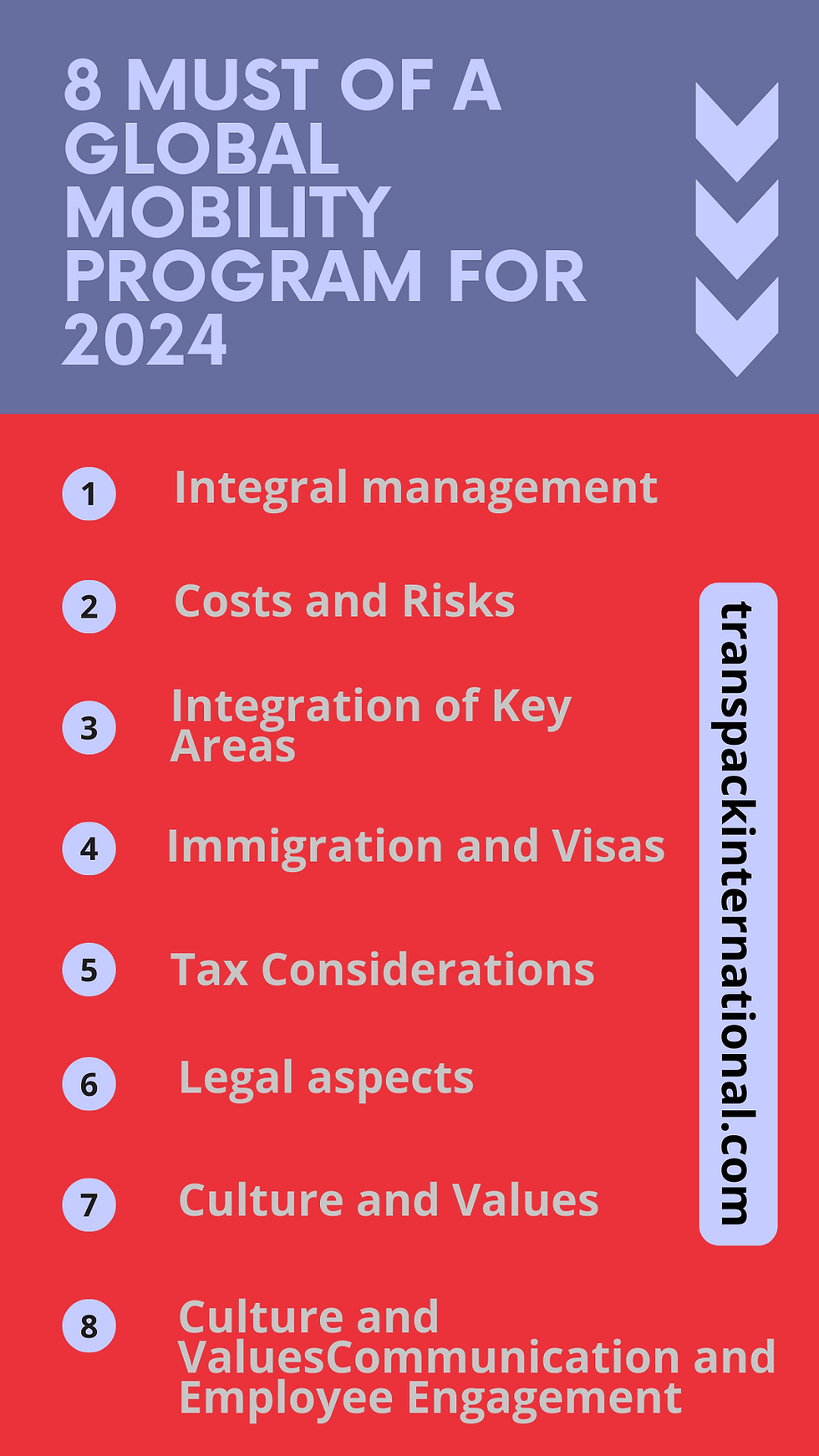8 Must of a Global Mobility Program for 2024
- Marcos
- Nov 2, 2023
- 1 min read

Global mobility programs must be managed strategically and comprehensively, addressing legal, tax, cultural, and communication aspects to ensure a successful experience for both employees and the company.
Comprehensive Management: It is essential and should address areas such as immigration, taxes, international labor laws, and other related aspects.
Costs and Risks: Global mobility programs can be costly if a comprehensive approach that accurately considers existing costs and risks is not applied.
Integration of Key Areas: Such as human resources, taxes, travel, payroll, finance, immigration, and accounting.
Immigration and Visas: Compliance with immigration requirements, such as visas and work permits, in accordance with international tax and legal considerations.
Tax Considerations: The management of tax considerations, including tax treaties and monitoring employee travel.
Other Legal Aspects: Applicability of non-compete agreements in foreign jurisdictions and the need to establish appropriate legal entities in foreign countries.
Culture and Values: Considering local culture and values when expanding internationally.
Communication and Employee Engagement: Employee engagement and effective communication are essential for the success of global mobility programs.
Sources:
Developing an Effective Global Mobility Program, SHRM
Building a Global Mobility Programme, Deloitte
How to create a successful global mobility programme, NoHQgram

.png)

Comments